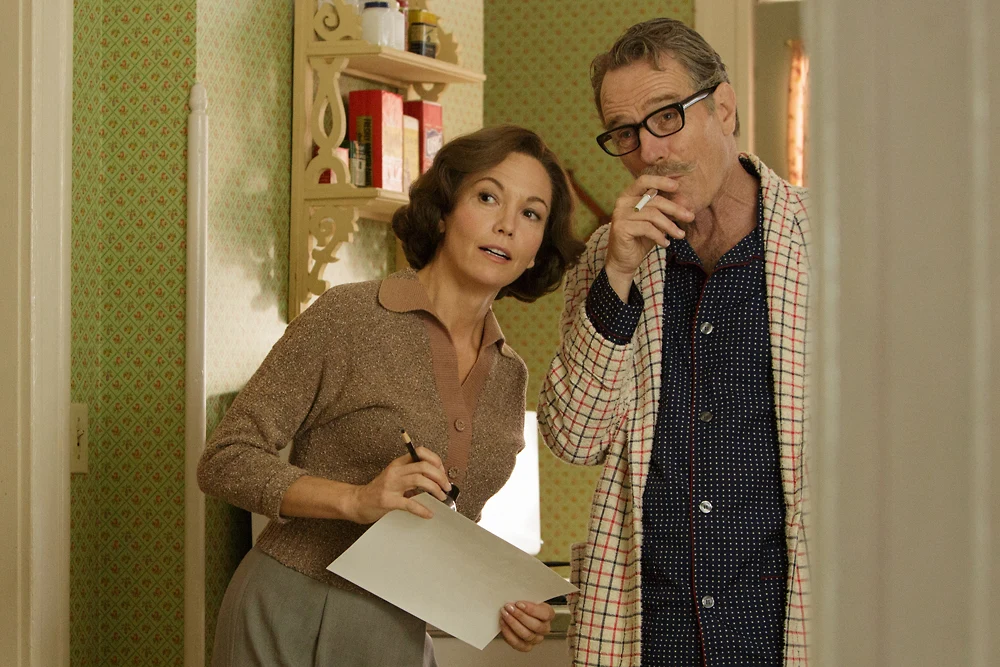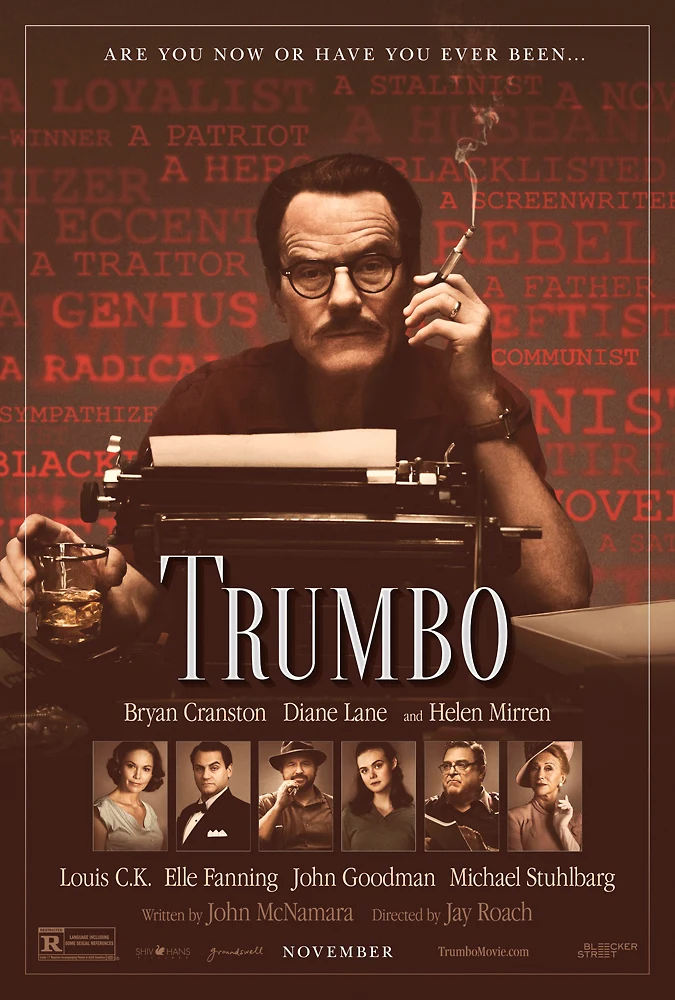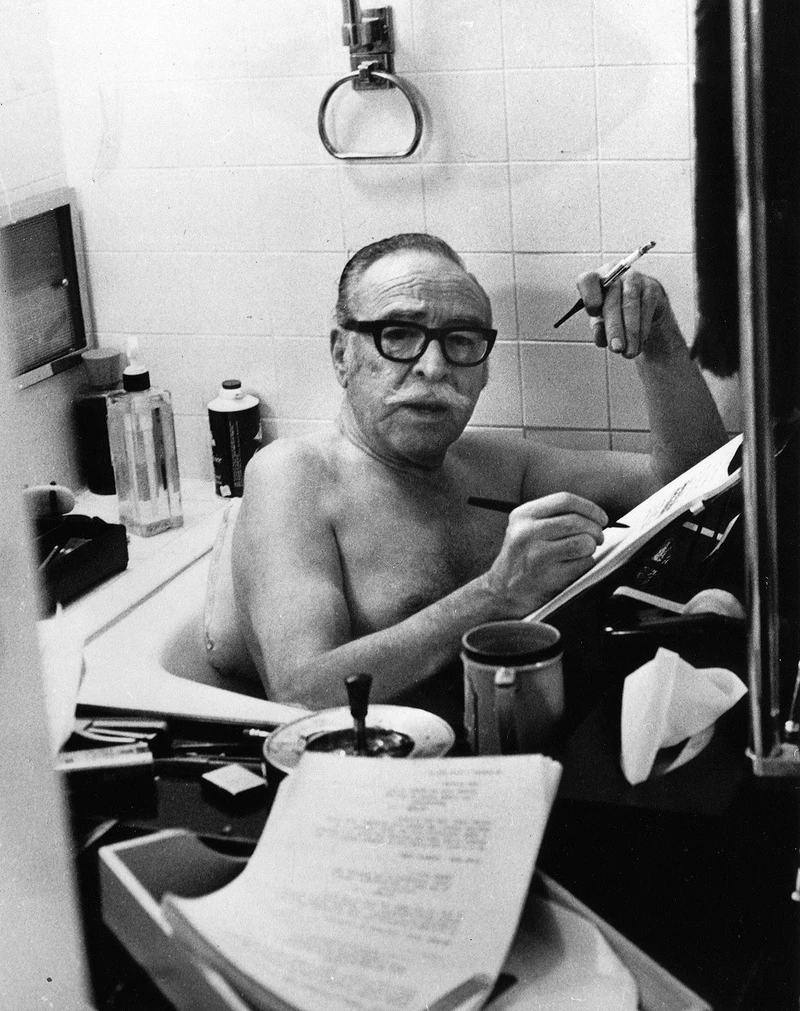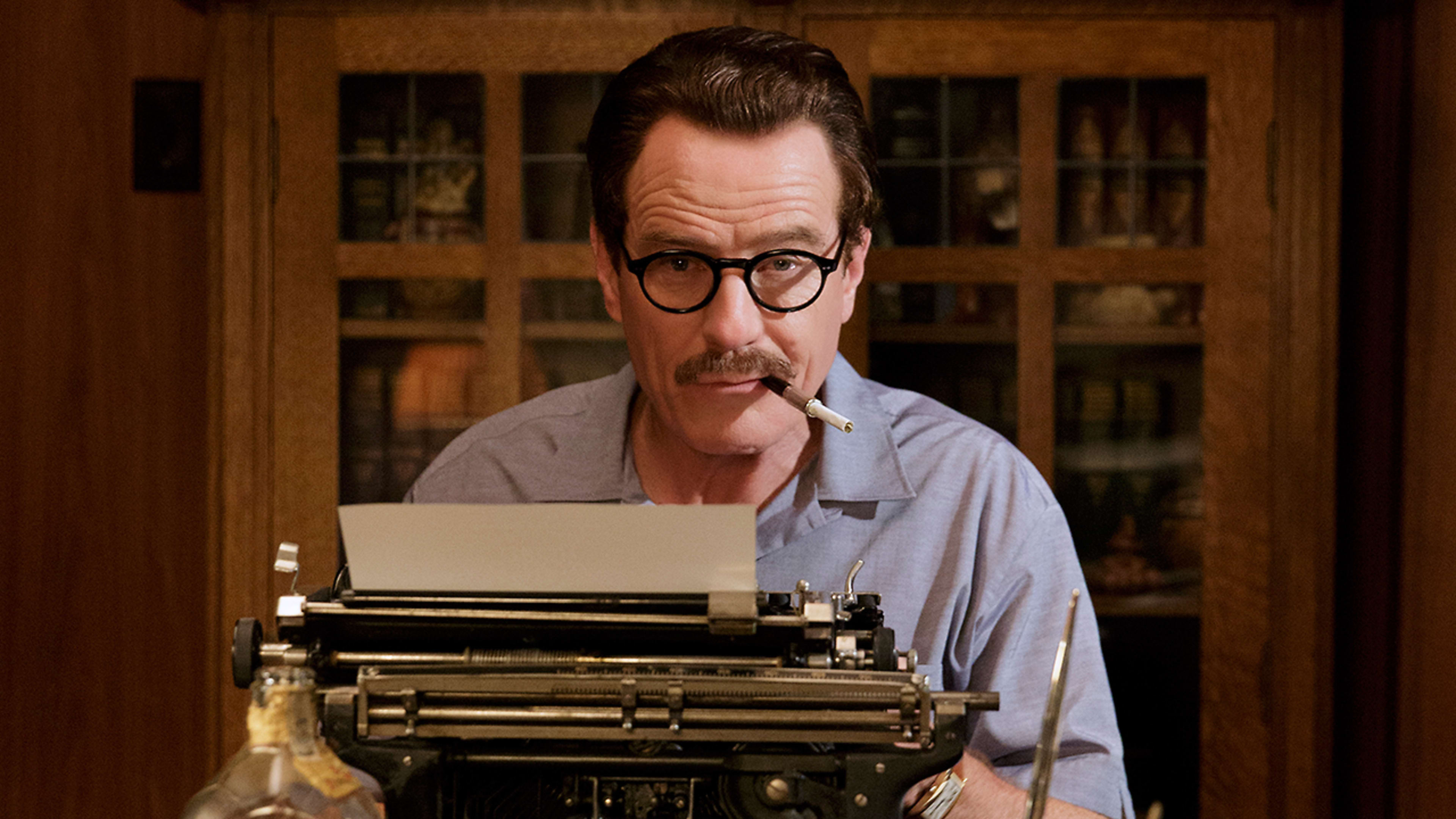As a 22-year-old NYU film student, John McNamara first learned about Dalton Trumbo in an elevator when he tried to compliment his professor for an movie script for which he won an Oscar. “On the way to class on the top floor of NYU library, I told my teacher Ian McClellan Hunter how much I liked Roman Holiday, which I’d just seen at a revival house,” McNamara recalls. “He said to me, ‘I did not write that movie, it was written by my great friend Dalton Trumbo.’ I figured, ‘There’s got to be a good story there.'”
McNamara tells that story in Trumbo, which begins an expanded release on November 25. Portrayed by Bryan Cranston, Trumbo, once the highest paid writer in Hollywood, goes to prison after refusing in 1947 to testify before a congressional committee about his Communist affiliations. When he gets out of jail, Hollywood studios, prodded by right-wing gossip columnist Hedda Hopper (Helen Mirren) refuses to hire him. With a wife and three kids to support, Trumbo gives his Audrey Hepburn romantic comedy Roman Holiday story to Hunter for some under-the-table cash. Then, he organizes a secret network of outcasts to bang out scripts under pseudonyms for pinball operator turned B-movie producer Frank King (John Goodman). In 1960, Trumbo finally comes out of the “I’m a Communist” closet and wins an Academy Award–under his own name–for penning Spartacus.
Dalton and his “Hollywood 10” confederates embodied a spirit of creative resistance that McNamara found enthralling. “The man himself was so entertaining,” he says. “If you read his letters, talk to his daughters, talk to his friends, you see that Dalton was at heart a prankster who defined this almost lunatic optimism.”

Researching the Cold War
After being introduced to the Trumbo mystique by Hunter and his NYU colleagues Waldo Salt, and Ring Lardner Jr., McNamara moved to Los Angeles, forgot about the blacklist and spent two decades working as a TV writer-producer. In 2008, producer Kevin Brown noticed an out-of-print Trumbo biography on McNamara’s bookshelf and convinced him to write a movie about the guy who out-smarted the Motion Picture Alliance for American Ideals.
“For many years, working on Trumbo seemed like an incredibly stupid non-paying hobby,” says McNamara, who quit his television “day job” to research microfilm newspaper archives. “In 1950, 65% of Americans believed communists in the United States should be thrown into internment camps,” he says. “Reading newspaper accounts, I realized how difficult it must have been for Dalton Trumbo when every single headline and news item goes against him and his values.”
The Director Asks For Re-Writes

An early version of the script made its way to filmmaker Jay Roach. The director of Meet the Parents and HBO Sarah Palin bio pic Game Change urged McNamara to interview Trumbo’s daughters about how the blacklist affected life at home.
Roach says, “I had a personal connection to the Cold War period because my dad worked for the defense industry at Sandia Laboratory in Albuquerque. He was a professionally paranoid person for his entire career, so the Cold War caused tension in my house. My dad was always quick to remind us not to talk to the neighbors about what he did.”
Cranston in Character

McNamara’s revised screenplay attracted Cranston, who literally immersed himself in the character by spending hours at a time in a bath tub improvising lines of dialogue as cameras rolled. In real life, Trumbo, fueled by amphetamines, whiskey, and cigarettes, crafted his screenplays in a tub because of a bad back, but the image resonates on a metaphorical level as well: Against all odds, the man refused to shut up. Roach says, “This film happens to pit left versus right during this moment in time, the 1950s, but it’s really about freedom of speech as a foundational cornerstone of the constitution. In that sense, I see Trumbo as a fundamentally American story.”
Hitting theaters in the same week that presidential debates included discussion of a Deportation Force, Trumbo serves as an especially pertinent cautionary tale. “We show what happens when legitimate fear-based protectiveness gets dialed up by politicians into propaganda. Suddenly people are categorized as being un-American, and of course we see that in modern politics too,” Roach says.
McNamara, currently producing David Duchovny’s Charles Manson period drama Aquarius–hopes Trumbo illuminates the perils of fear-driven politics. “Trumbo’s story flows through one of the biggest artery of American life which has to do with freedom versus security,” he says. “If one of those two things gets larger than the other, it throws the country out of whack.”
Recognize your brand’s excellence by applying to this year’s Brands That Matter Awards before the early-rate deadline, May 3.
